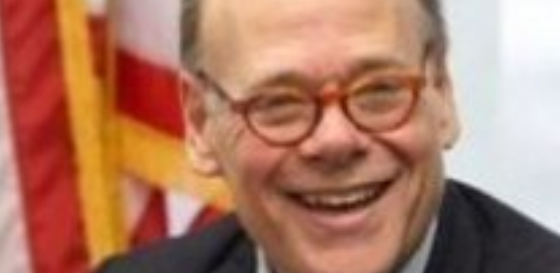Columnist believes Rep. Stephen Ira Cohen will likely lead the reparations demand after Conyers’ resignation. Photo: Flickr
At a recent meeting of state, local and community leaders, Detroit NAACP branch president Rev. Wendell Anthony denounced the calls that ultimately led to U.S. Rep. John Conyers’ resignation as an “unholy and unlawful guillotine.”
Speakers said they didn’t want a person who had served the district and the country for more than 50 years to be pressured into resignation without a chance to defend himself.
I’ve said in a previous column that Conyers stayed too long in Congress and should have long gone. But I must say the only man saying anything about the damages imposed on Blacks by their enslavement, was Congressman John Conyers 30 years ago
I’m a business man and cherish the fruits of drive and hard work. At the same time I know reparations is the right of descendants of enslaved Africans.
Ask Blacks:“What are the best ways to reduce racial inequality?”
You’ll get a plethora of answers based on approaches for reducing racism, but nary a word about getting paid debts owed us from the era of enslavement. Everybody is talking about racism in America; but it’s rare anyone says a word about enslavement and debts due us from that crime against humanity.
Beginning with more than two centuries of enslavement, Black Americans have been deliberately abused in this nation. It’s time for the nation to pay restitution.
Ex-Rep. Conyers was supposed to get “proper payback” for descendants of enslaved Blacks, but he and other entrenched members of the Congressional Black Caucus spent more time enriching themselves than taking care of their neglected constituents. Yes, Conyers pushed civil rights early on; as he grew older he fumbled and bumbled his way into forced resignation.
Enslavement existed in North America for 245 years. Its aftermath is in force to day, however contemporary Blacks are more enthralled with assimilating in America than justice. It’s acceptance of a race where those who profited –European Americans– are always near the finish line.
Now, let’s say that for generations, your family and families like yours have been damaged by this country’s prejudiced political and economic system — by law and widespread practice, with the intent of benefiting families not like yours. Those are the “White privileged” that should pay the enduring harmful legacy of enslavement.
Conyers didn’t do a masterful job enabling reparations. Blacks must coalesce around leadership that seeks justice. Todsy, while most members of the Congressional Black Caucus shy away from legislating and advocating for Black’s interests, Memphis Congressman Stephen Ira Cohen is the one most likely one to pick up the gauntlet for reparations.
Representing Tennessee’s 9th congressional District which includes the western three-fourths of Memphis, Cohen has served that overwhelmingly Black district since 2007 and is Tennessee’s first Jewish congressman. It was not Conyers, but Cohen, that got the House to pass a resolution apologizing for slavery and Jim Crow.
The Black Caucus’ leadership has gotten Black America into the shape it’s in. The CBC seeks mainstream district members like Mia Love from Utah and Will Hurd from Texas’ majority-White 23rd District while rebuffing Cohen’s attempts to join.
More than 60% of the people in his Memphis-based congressional district is Black. After Cohen replaced Harold Ford and Junior in Congress he took on more Black issues than had Ford, the father, and later, the son.
So, why are Blacks resistant to pursue reparations justice? In their political alliances, Blacks dance on heads of snakes; while they eschew legislation to secure reparations.
When it comes to pursuing justice and leadership in America, many Blacks are more interested in seeking affirmation and social acceptance in mainstream America.
They will trip over each other to get into other folks’ fights except their own. They should step away from partisan ideologies and tune into more focused activities to get just due.
Sources of prejudice and discrimination are often rooted in particular historical and social contexts and are shaped by institutional structures and practices. Blacks have bought into: the “American way” of life and its values and traditions even though most are excluded by discrimination.
Instead of seeking to be paid, many Black people have bought into “big government” ideologies and tangential “poor peoples’ marches” for intermittent government funding and assistance when we can get all that is owed with consistent, determined coordinated efforts.
The debt owed to descendants has been calculated ranging from $6 -to $14 trillion.
Time to organize for proper reparations.
William Reed is publisher of “Who’s Who in Black Corporate America” and available for projects via [email protected]







